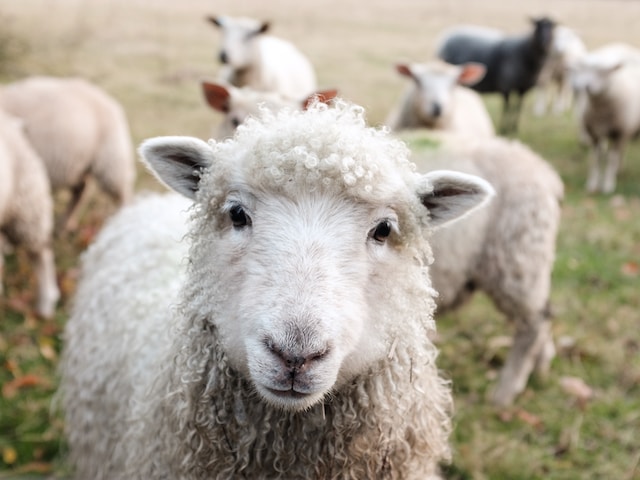
Embarking on a vegan journey is more than just a dietary preference; it is a philosophy, an ideology, and a profound act of compassion towards our fellow creatures and the planet we call home. It is a transformative experience that transcends mere eating habits and beckons us towards a higher consciousness – a vegan mindset that encourages us to reflect upon the choices we make every day, not only on our plates, but in every aspect of our lives.
Cultivating this vegan mindset is not an overnight endeavor. It requires patience, self-reflection, and a sincere commitment to personal growth. It is a revolution that starts from within and radiates outwards, touching every facet of our existence – from the food we consume to the products we purchase, and even the values we uphold.
One of the most powerful tools in nourishing the vegan mindset is the cultivation of positive habits. These habits act as the seeds from which lasting change blossoms. By consciously adopting practices that align with our beliefs and values, you can forge a path towards a more compassionate and sustainable existence.
The Psychology of Veganism
Delving into the psychology of veganism unveils the intricate relationship between our minds, emotions, and our dietary choices. By understanding the psychological underpinnings behind veganism, we can gain insights into why individuals choose this lifestyle and how it profoundly influences their worldview.
The Empathy Connection:
The foundation of veganism lies in empathy, the ability to put oneself in another being’s shoes and understand their suffering. Veganism challenges us to extend our circle of compassion beyond ourselves and towards all animals. Research shows that individuals who exhibit higher levels of empathy are more likely to embrace a vegan lifestyle. This connection highlights the significance of empathy as a driving force behind this dietary choice.
Cognitive Dissonance and Rationalization:
When confronted with information that challenges our existing beliefs or actions, cognitive dissonance often arises. In the context of veganism, this psychological phenomenon can manifest when individuals are faced with the ethical conflicts surrounding animal exploitation. To alleviate this discomfort, people may rationalize their dietary habits and create justifications that align with their existing beliefs. Recognizing and addressing cognitive dissonance is vital in fostering a genuine vegan mindset.
Social Identity and Belonging:
Humans are social creatures, and our identities are shaped by the groups we associate ourselves with. Veganism can become more than just a dietary choice; it can become a significant part of one’s identity. This identity is often reinforced through participation in vegan communities and social media activism.
Engaging in events or protests that promote animal welfare is also another way. The sense of belonging that comes with being part of a like-minded community can provide crucial support to those adopting a vegan lifestyle.

Psychological Well-being:
Studies suggest that individuals who follow a vegan diet may experience improved psychological well-being. The factors contributing to this phenomenon include a sense of purpose and alignment with personal values, increased mindfulness about food choices, and the potential benefits of a nutrient-rich plant-based diet. Veganism’s emphasis on compassion and the environment also provides a sense of moral integrity, further enhancing an individual’s overall well-being.
Mindful Eating and Food Awareness
In our fast-paced world filled with distractions and constant stimulation, it is easy to fall into mindless eating patterns. However, adopting a vegan mindset calls for a shift towards mindful eating and a heightened awareness of the food choices we make. This section explores the importance of mindful eating and how it promotes a deeper connection with our food, our bodies, and the world around us.
The Art of Mindful Eating:
Mindful eating is not just about what we eat but also about how we eat. It encourages us to slow down, savor each bite, and fully engage our senses in the culinary experience. By cultivating mindfulness during meals, we can develop a deeper appreciation for the flavors, textures, and aromas of plant-based foods. Moreover, mindful eating allows us to tune into our body’s hunger and fullness cues, enabling us to nourish ourselves more intuitively.
Cultivating Food Awareness:
Embracing a vegan mindset compels us to become more aware of the impact our food choices have on our health, the environment, and animal welfare. It is about understanding that our plate holds the power to effect change.
By educating ourselves about the various aspects of veganism, we can make informed decisions that align with our values. Food awareness not only transforms our relationship with food but also empowers us to be agents of positive change.

Mindful Meal Planning and Preparation:
Meal planning and preparation can be an opportunity for mindfulness and creativity. By consciously selecting plant-based ingredients, exploring new recipes, and cooking with intention, we can infuse our meals with love and compassion. Mindful meal planning also allows us to prioritize nutrition, ensuring that our bodies receive the essential nutrients they need to thrive on a vegan diet. This heightened awareness extends beyond the dinner table and reinforces our commitment to ethical and sustainable living.
Gratitude and Connection:
In a world where convenience often takes precedence, mindful eating reminds us to express gratitude for the abundance of plant-based foods available to us. Taking a moment before each meal to appreciate the journey of the ingredients, from seed to plate, allows us to connect with the earth, the farmers, and the ecosystem that sustains us. This practice of gratitude fosters a deeper appreciation for the interconnectedness of all living beings and inspires us to make conscious choices that honor both our bodies and the world we inhabit.
Mindful Eating Beyond the Plate:
Developing a vegan mindset extends beyond the boundaries of our plate. It invites us to explore the wider implications of our food choices, such as supporting sustainable agriculture, reducing food waste, and advocating for policies that promote animal welfare. Mindful eating becomes a guiding principle in our lives, shaping not only what we eat but also how we engage with the world around us.
Self-Compassion and Nurturing the Vegan Self
Cultivating a vegan mindset requires not only compassion towards the animals and the planet but also towards ourselves. Nurturing the vegan self involves practicing self-compassion, embracing self-care, and finding balance in a world that may not always align with our values. Here are some strategies and principles to guide you on this journey of self-discovery and growth.

Embracing Self-Compassion:
One of the fundamental aspects of nurturing the vegan self is to practice self-compassion. Remember, transitioning to a vegan lifestyle may come with its own challenges, and that’s okay. Instead of being overly critical or judgmental towards ourselves, we should offer ourselves kindness and understanding. Acknowledge that change takes time and be patient with yourself as you navigate this transformative journey.
Prioritizing Self-Care:
Self-care is essential for nourishing the vegan self. It involves making conscious choices that promote physical, mental, and emotional well-being. Set aside time each day for activities that bring you joy and relaxation, such as practicing yoga, meditation, taking nature walks, or indulging in a good book. Remember, taking care of yourself allows you to better care for others and the world around you.
Building a Support System:
Surrounding yourself with like-minded individuals who share your values can be a powerful source of support and encouragement. Connect with local vegan communities, participate in online forums or social media groups, and attend vegan events and gatherings. Share your experiences, seek advice, and celebrate your successes together. Building a support system empowers you to thrive on your vegan journey.
Self-Reflection and Growth:
Engage in self-reflection to deepen your understanding of your own values, motivations, and personal growth. Journaling, meditation, or engaging in meaningful conversations with trusted friends can provide opportunities for self-exploration. Continuously question and challenge your beliefs, seeking to align them with your evolving vegan mindset. Embrace growth and embrace the process of becoming the best version of yourself.
Practicing Gratitude:
Gratitude is a powerful tool for nurturing the vegan self. Take a moment each day to express gratitude for the privilege of being able to make conscious choices aligned with your values. Reflect on the abundance of plant-based foods available to you, the beauty of nature, and the small victories you experience along your vegan journey. Gratitude fosters a positive mindset and reinforces your commitment to the vegan lifestyle.
Cultivating a vegan mindset goes beyond just the choice to follow a plant-based diet. It requires a shift in consciousness, a commitment to empathy and compassion, and a willingness to align our actions with our deeply held values. By adopting positive habits, understanding the psychological aspects of veganism, practicing mindful eating, and nurturing the vegan self, we can truly embrace this transformative journey. As we navigate the challenges and joys of living a vegan lifestyle, let us remember that our choices have the power to create a more compassionate and sustainable world for all beings. Together, let us continue to cultivate the vegan mindset and make a lasting difference.